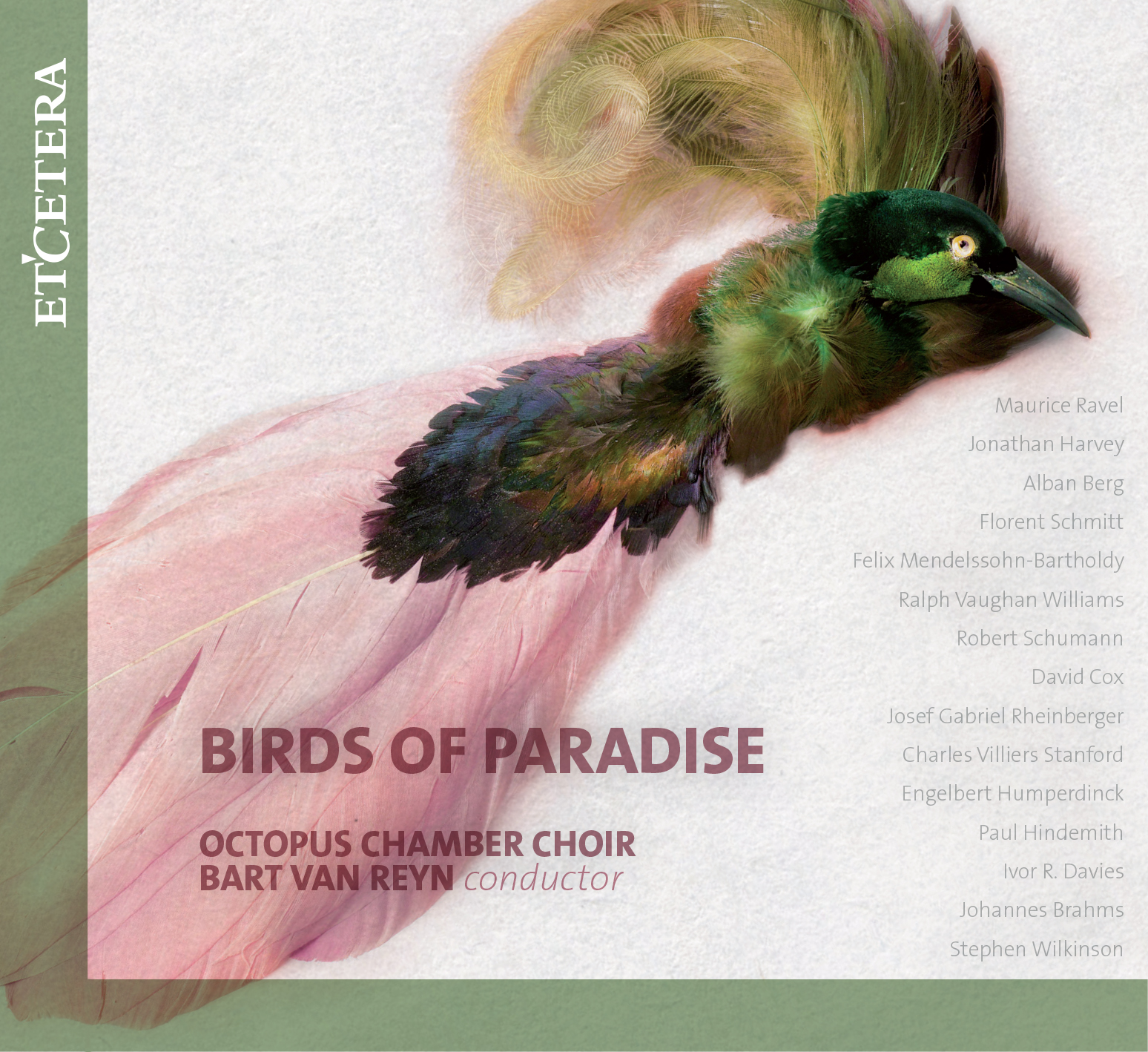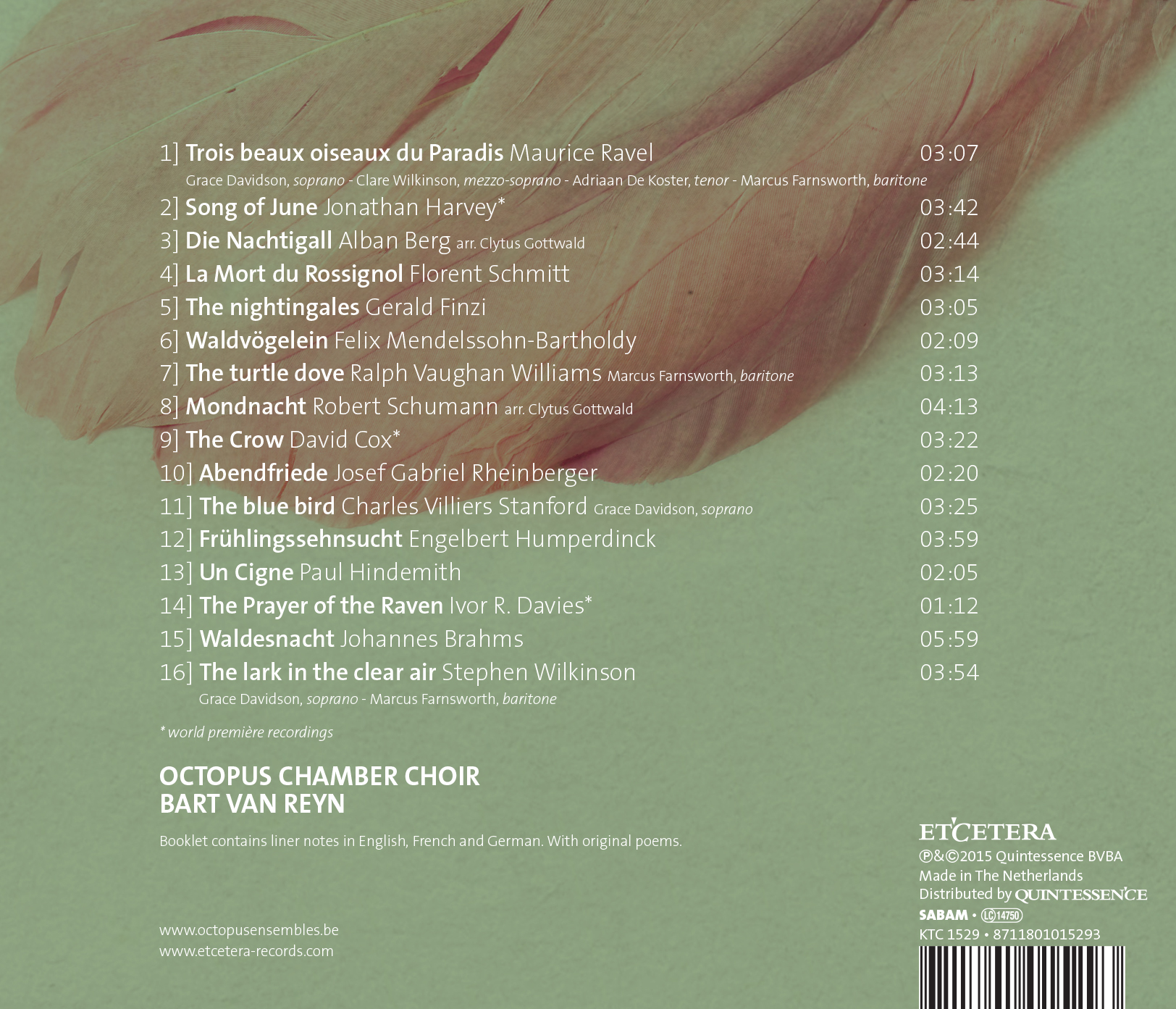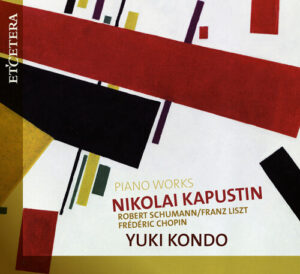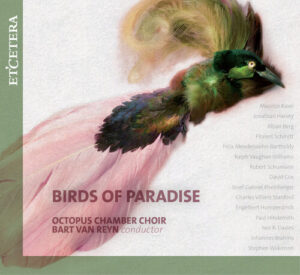1. Trois beaux oiseaux du paradis, M. 69
Composer: Maurice Ravel
Artist(s): Octopus Chamber Choir
2. Song of June
Composer: Jonathan Harvey
Artist(s): Octopus Chamber Choir
3. Die Nachtigall
Composer: Alban Berg
Artist(s): Octopus Chamber Choir
4. La mort du Rossignol, Op. 91
Composer: Florent Schmitt
Artist(s): Octopus Chamber Choir
5. The Nightingales
Composer: Gerald Finzi
Artist(s): Octopus Chamber Choir
6. Waldvögelein, Op. 88
Composer: Felix Mendelssohn Bartholdy
Artist(s): Octopus Chamber Choir
7. The Turtle Dove
Composer: Ralph Vaughan Williams
Artist(s): Octopus Chamber Choir
8. Mondnacht, Op. 39 No. 5
Composer: Robert Schumann
Artist(s): Octopus Chamber Choir
9. The Crow
Composer: David Cox
Artist(s): Octopus Chamber Choir
10. Abendfriede, Op. 156 No. 11
Composer: Josef Rheinberger
Artist(s): Octopus Chamber Choir
11. The Blue Bird, Op. 119 No. 3
Composer: Charles Villiers Stanford
Artist(s): Octopus Chamber Choir
12. Frühlingssehnsucht
Composer: Engelbert Humperdinck
Artist(s): Octopus Chamber Choir
13. Un cigne
Composer: Paul Hindemith
Artist(s): Octopus Chamber Choir
14. The Prayer of the Raven
Composer: Ivor R. Davies
Artist(s): Octopus Chamber Choir
15. Waldesnacht, Op. 62 No. 3
Composer: Johannes Brahms
Artist(s): Octopus Chamber Choir
16. The Lark in the Clear Air
Composer: Stephen Wilkinson
Artist(s): Octopus Chamber Choir









Reviews
There are no reviews yet.